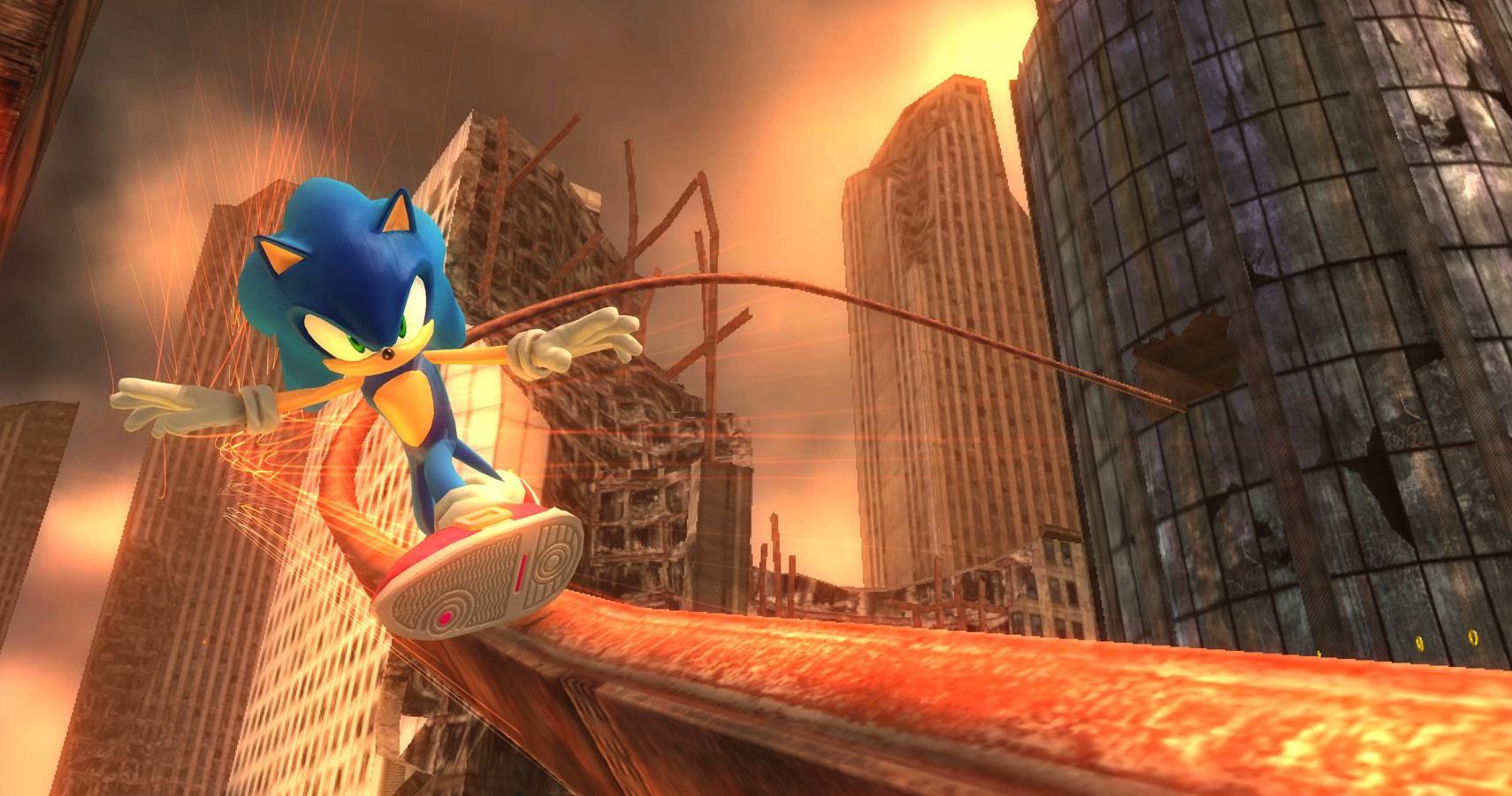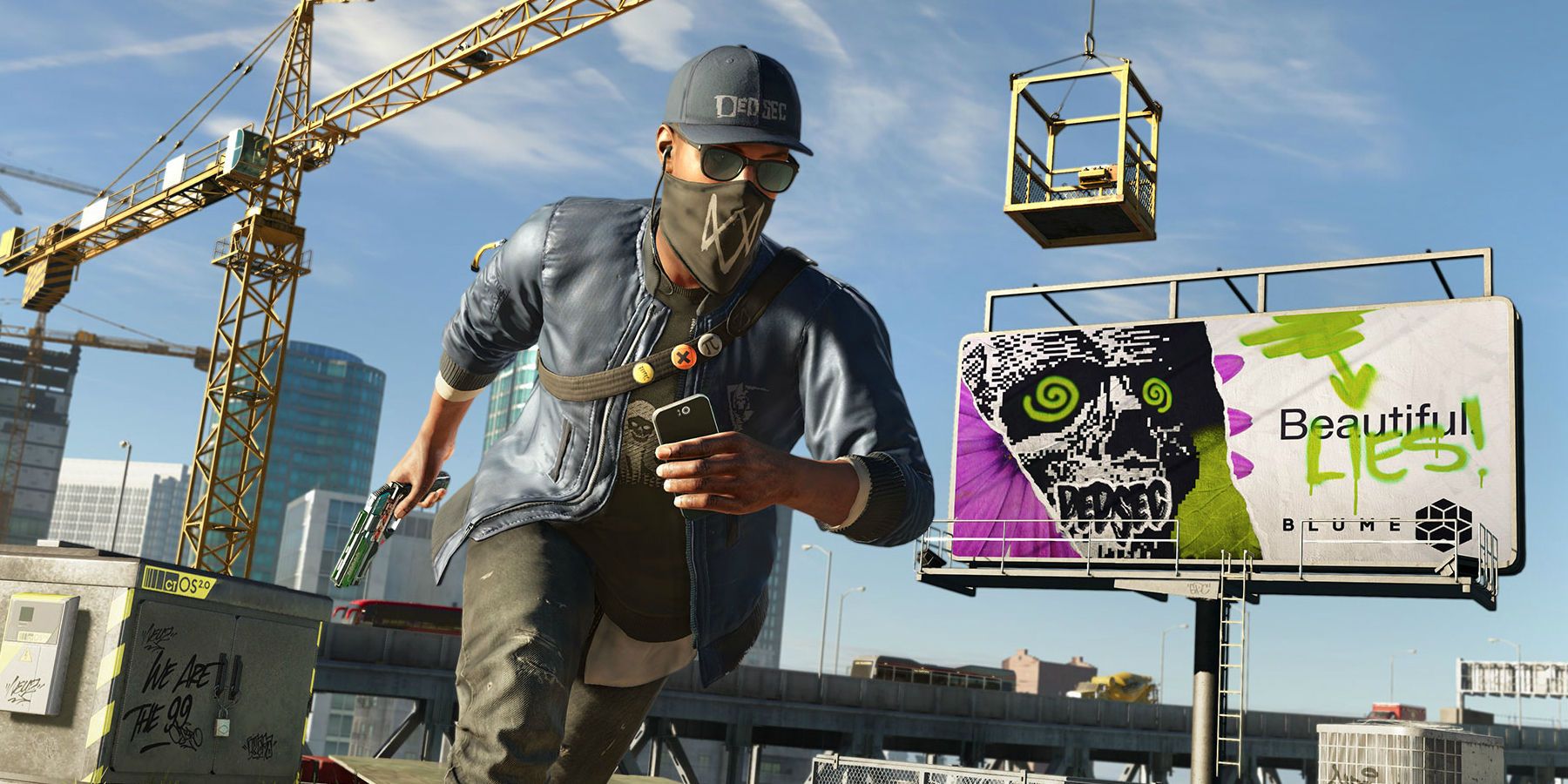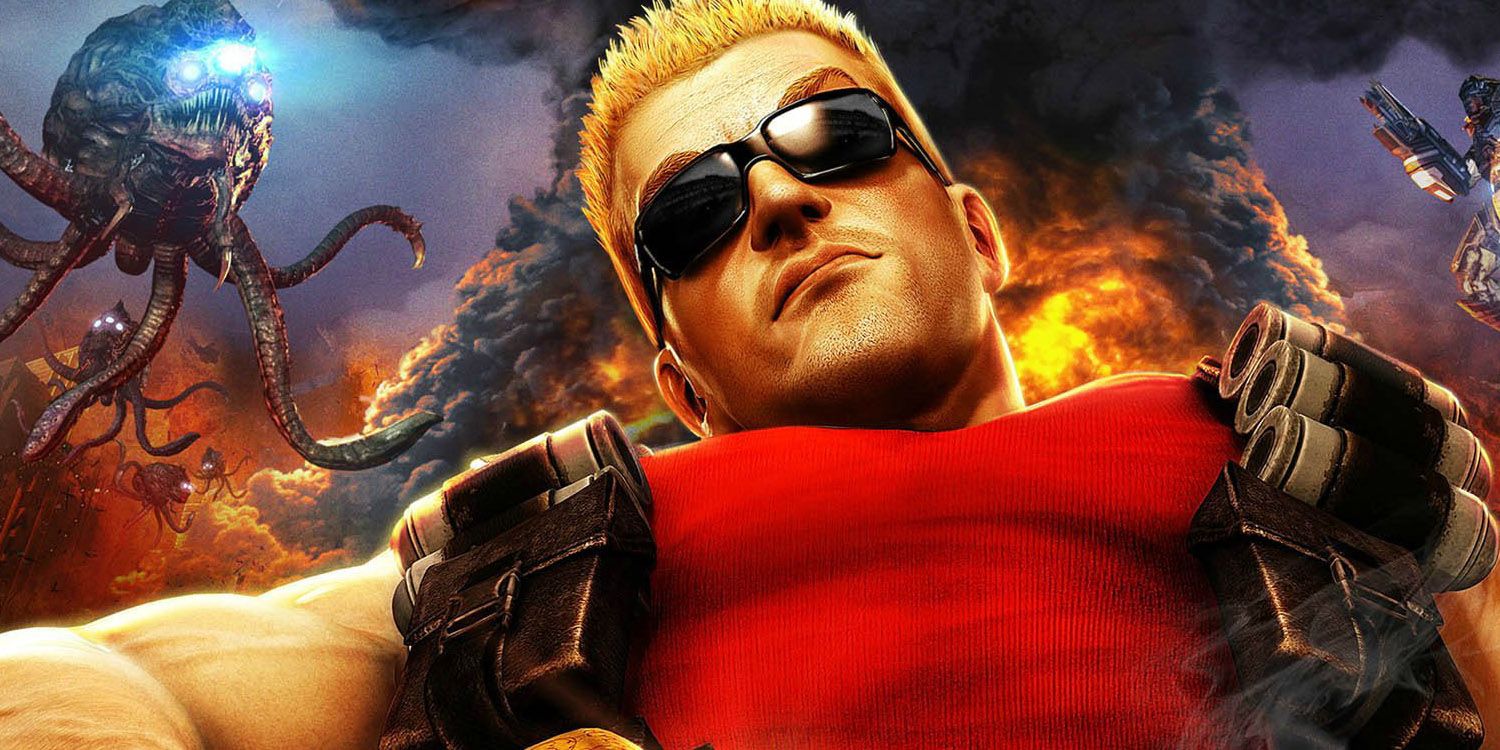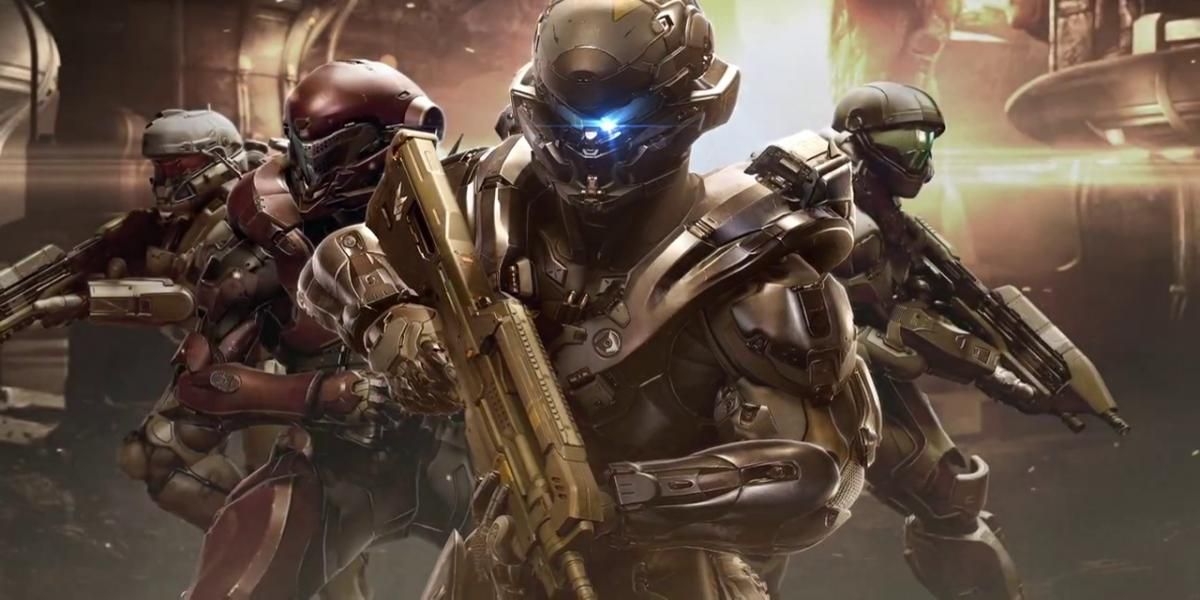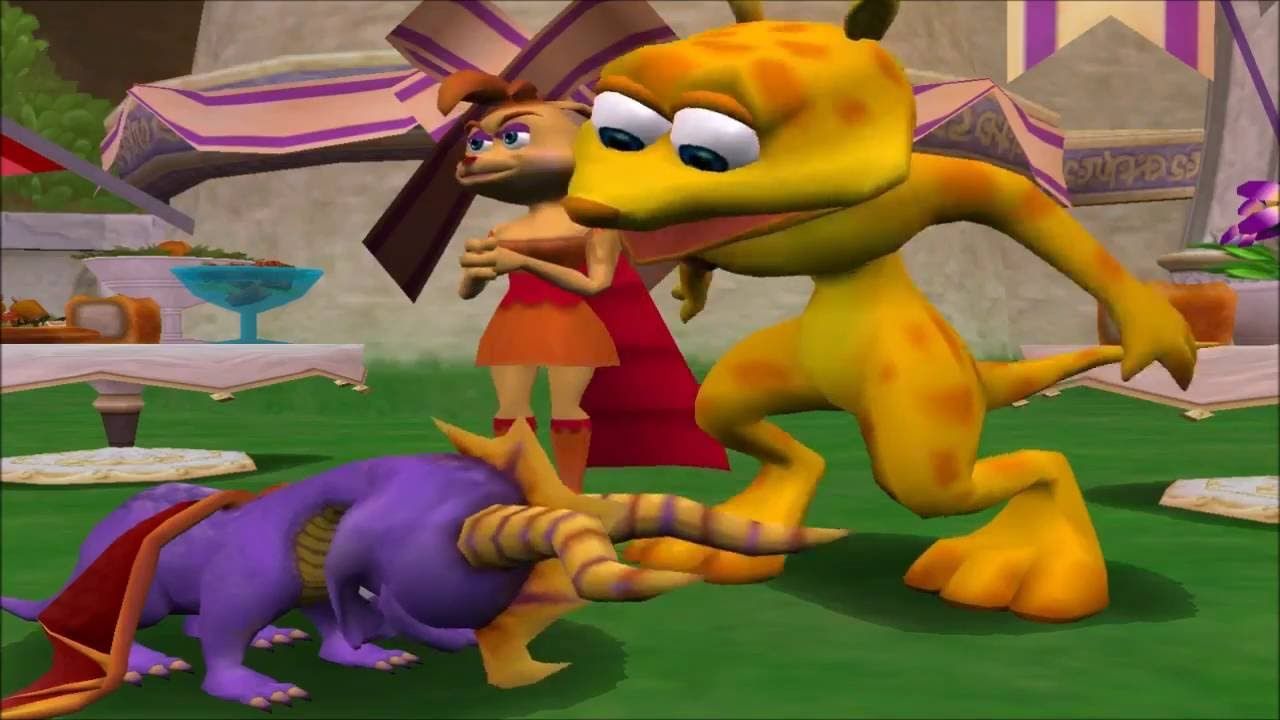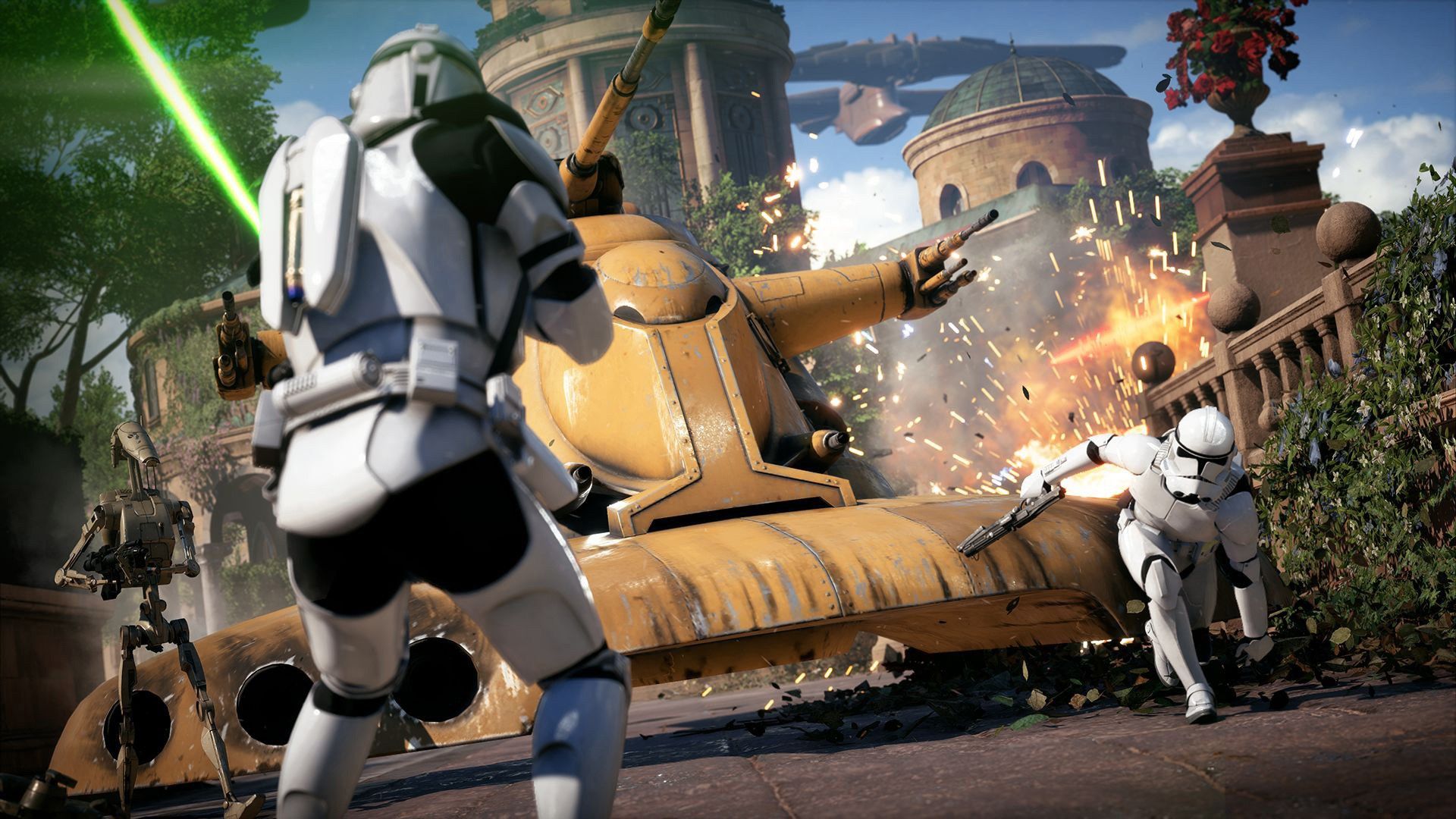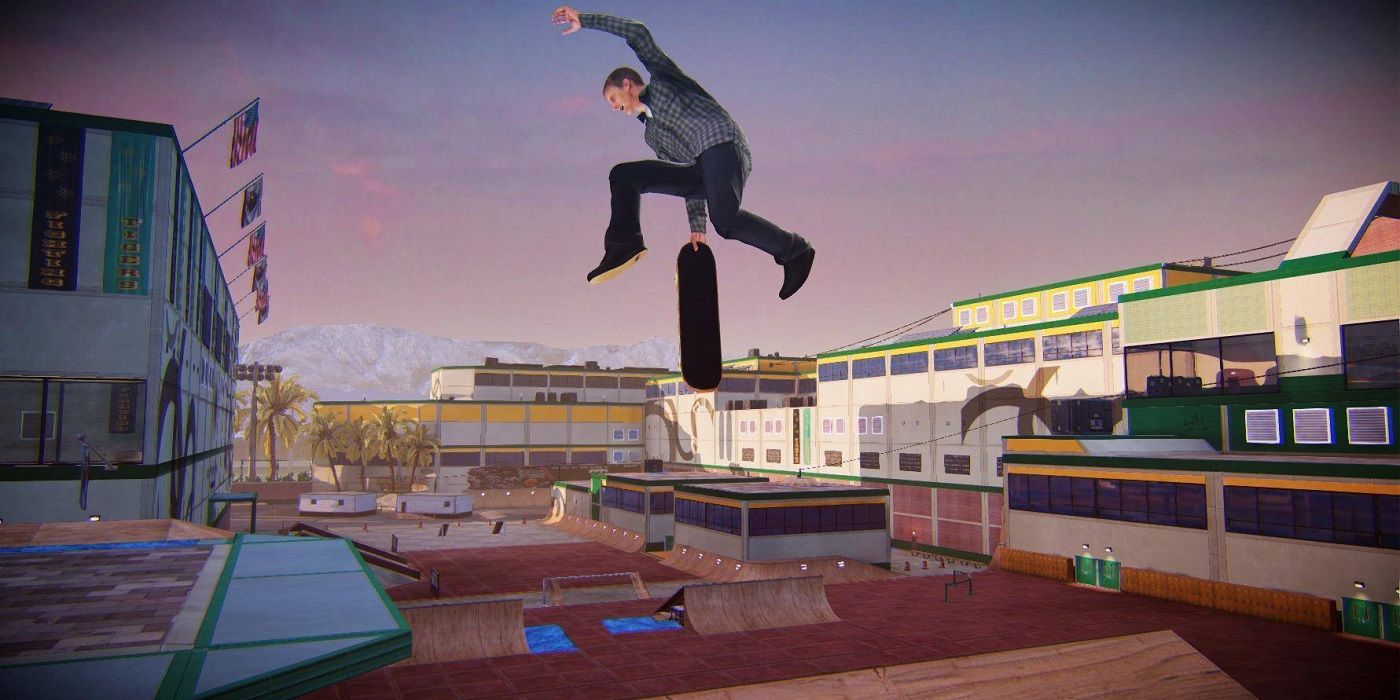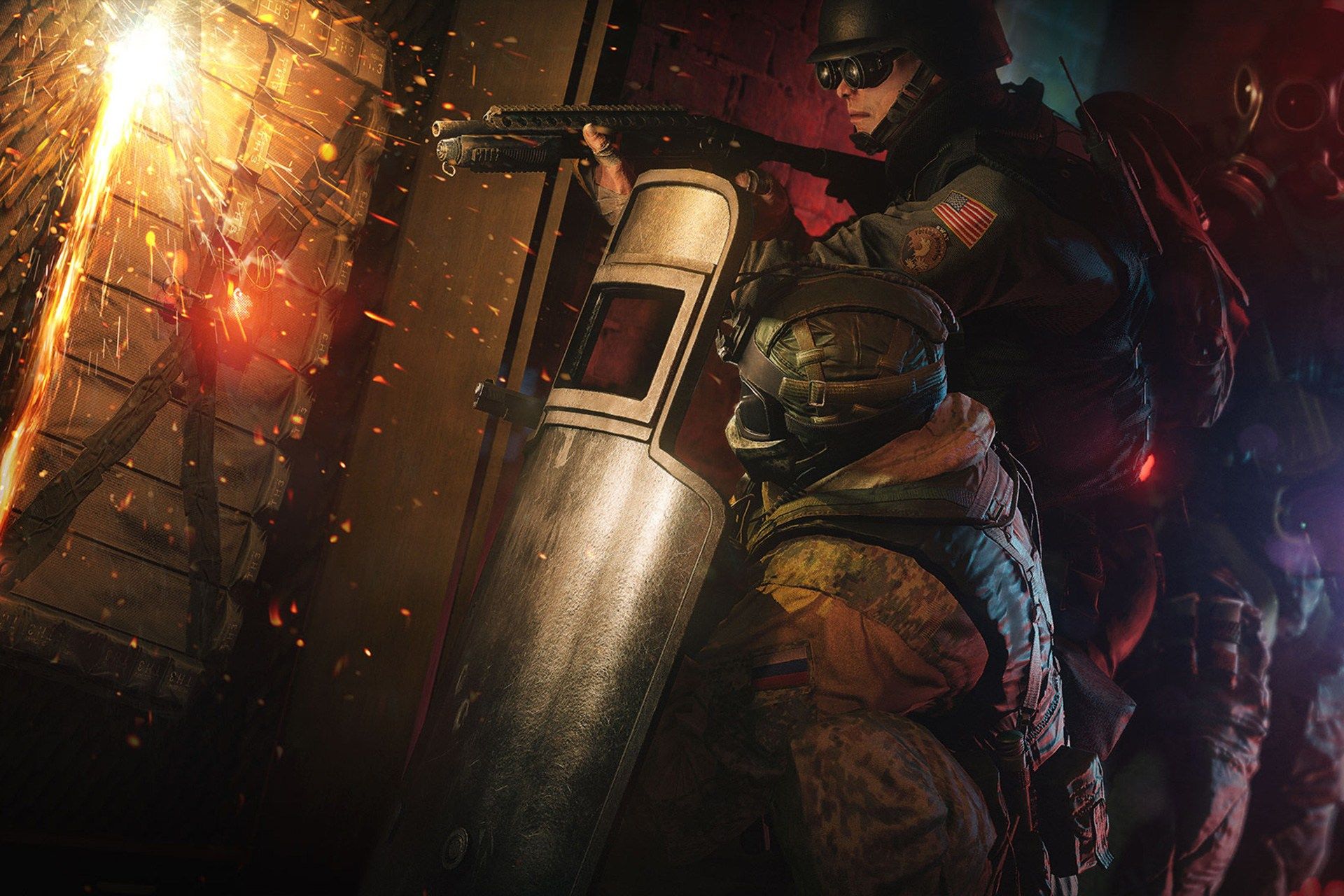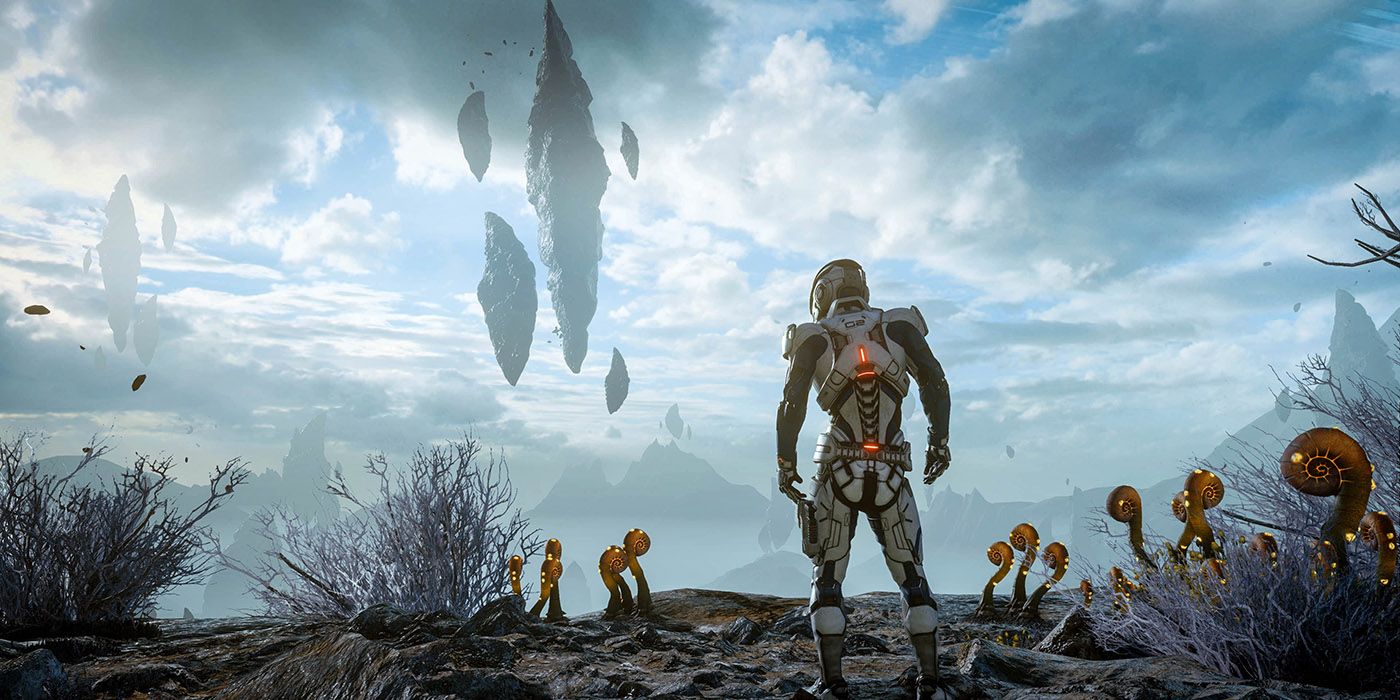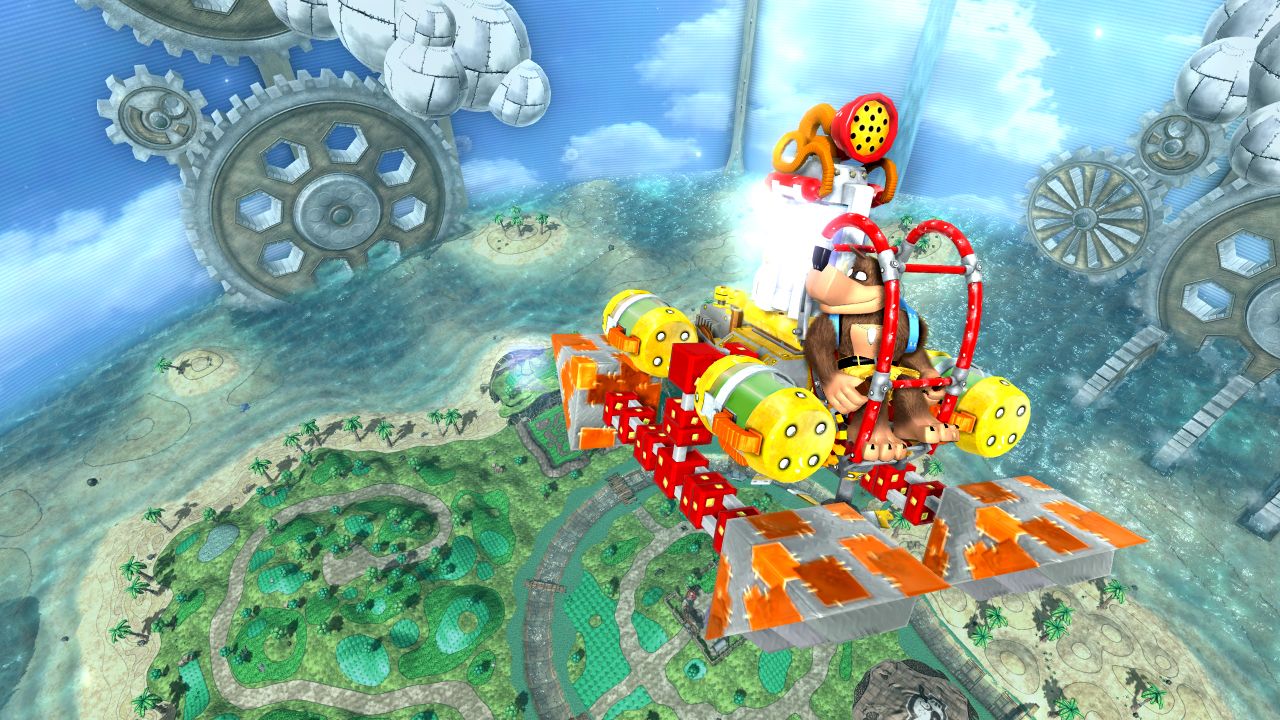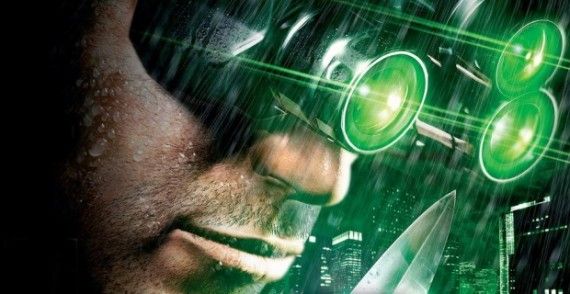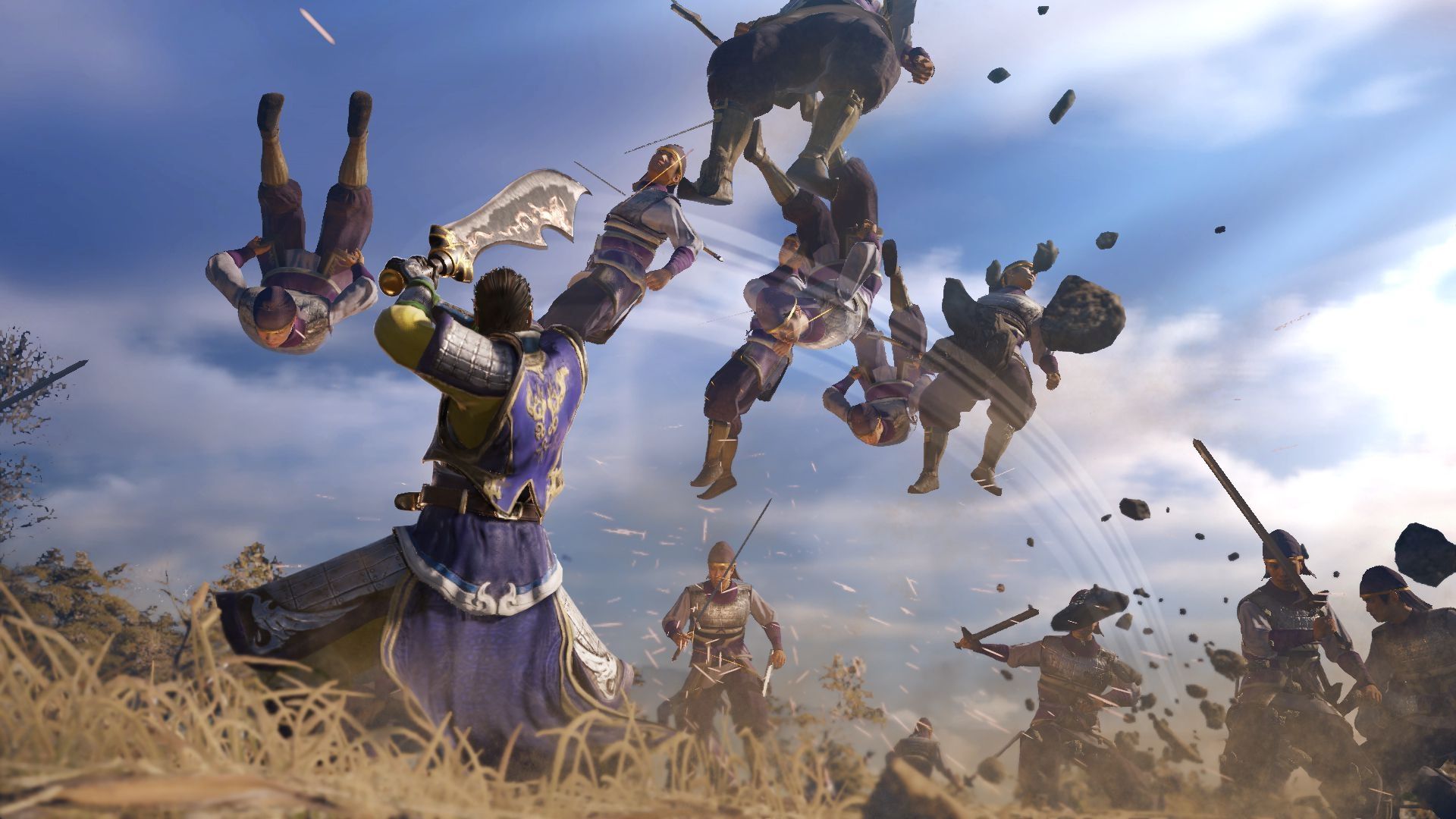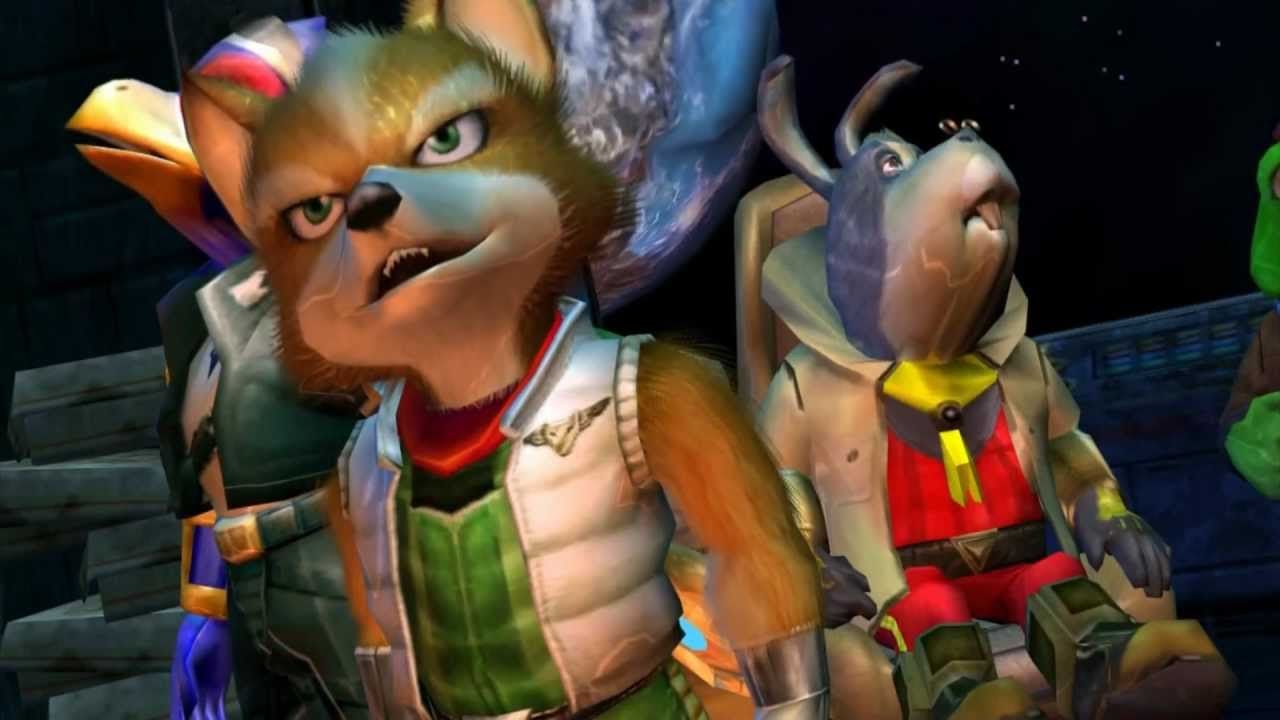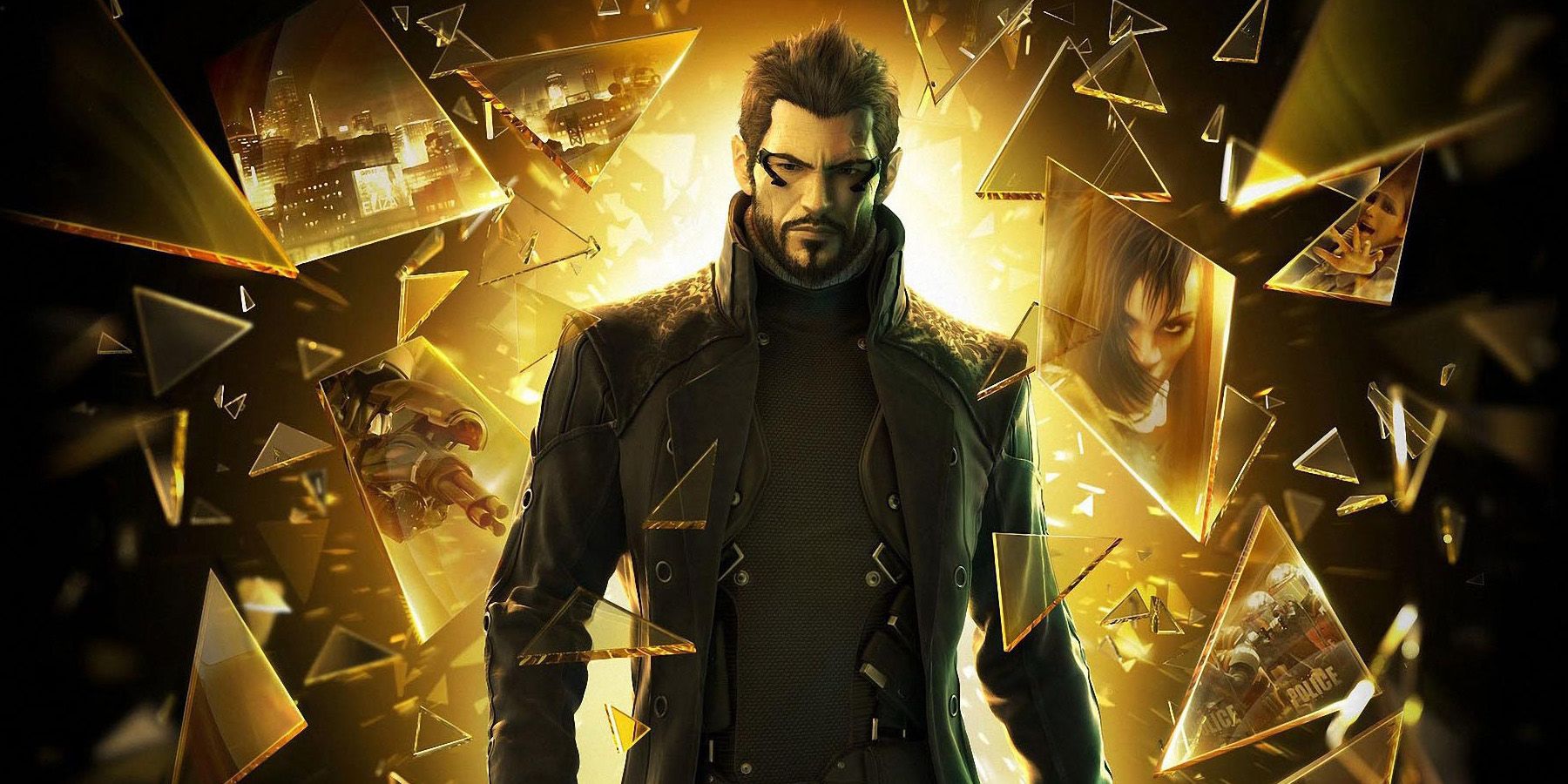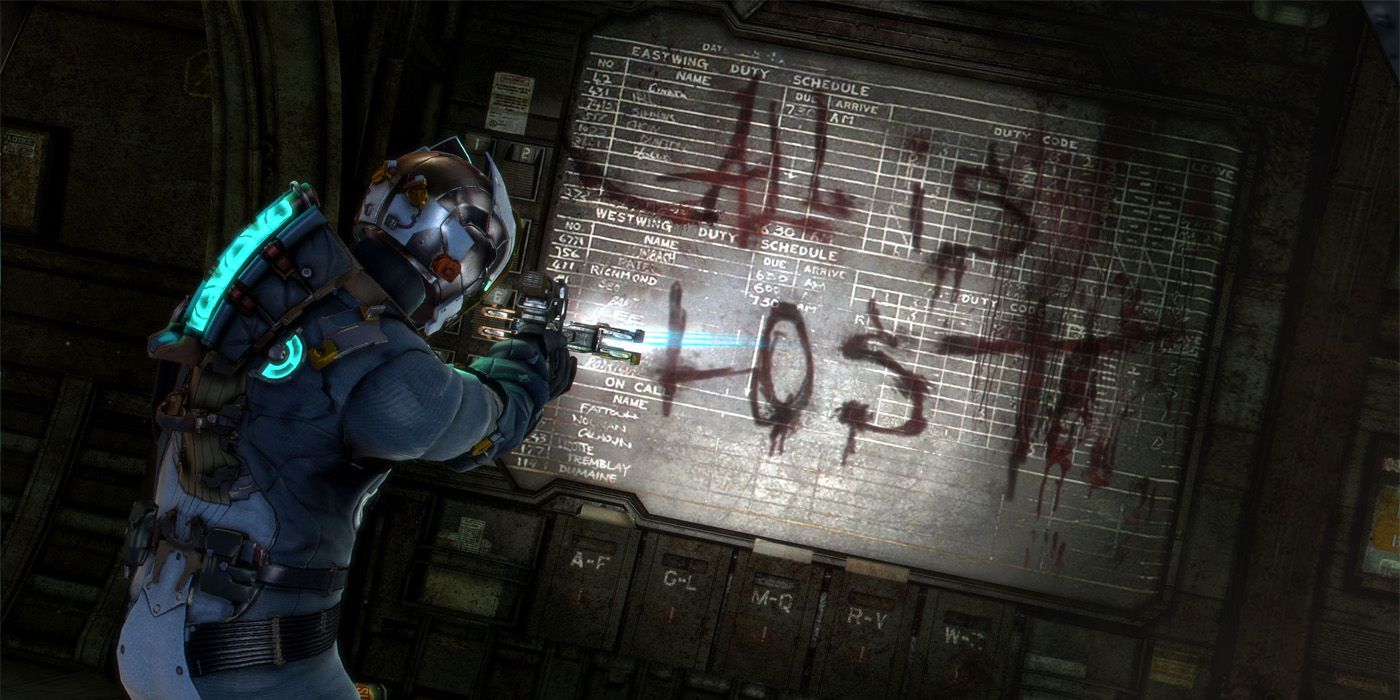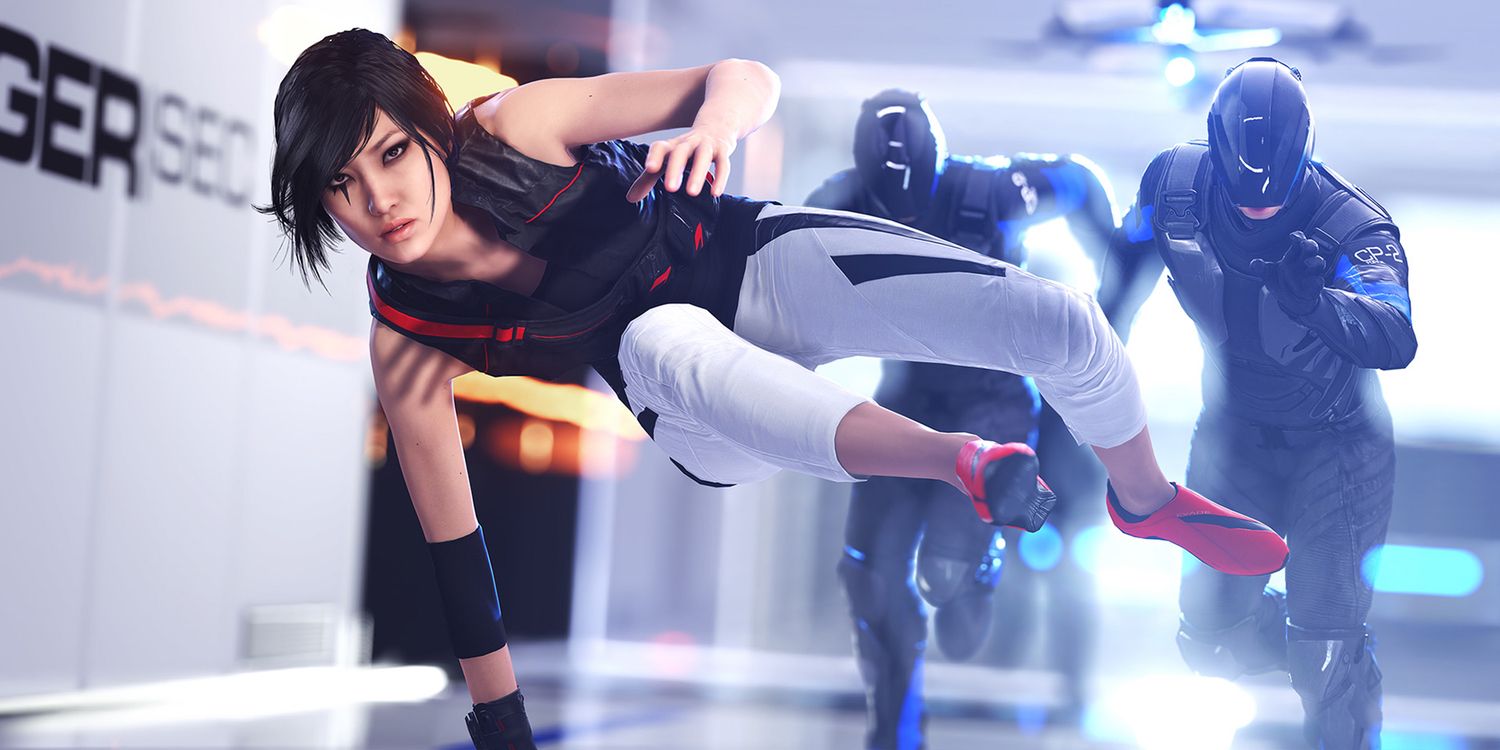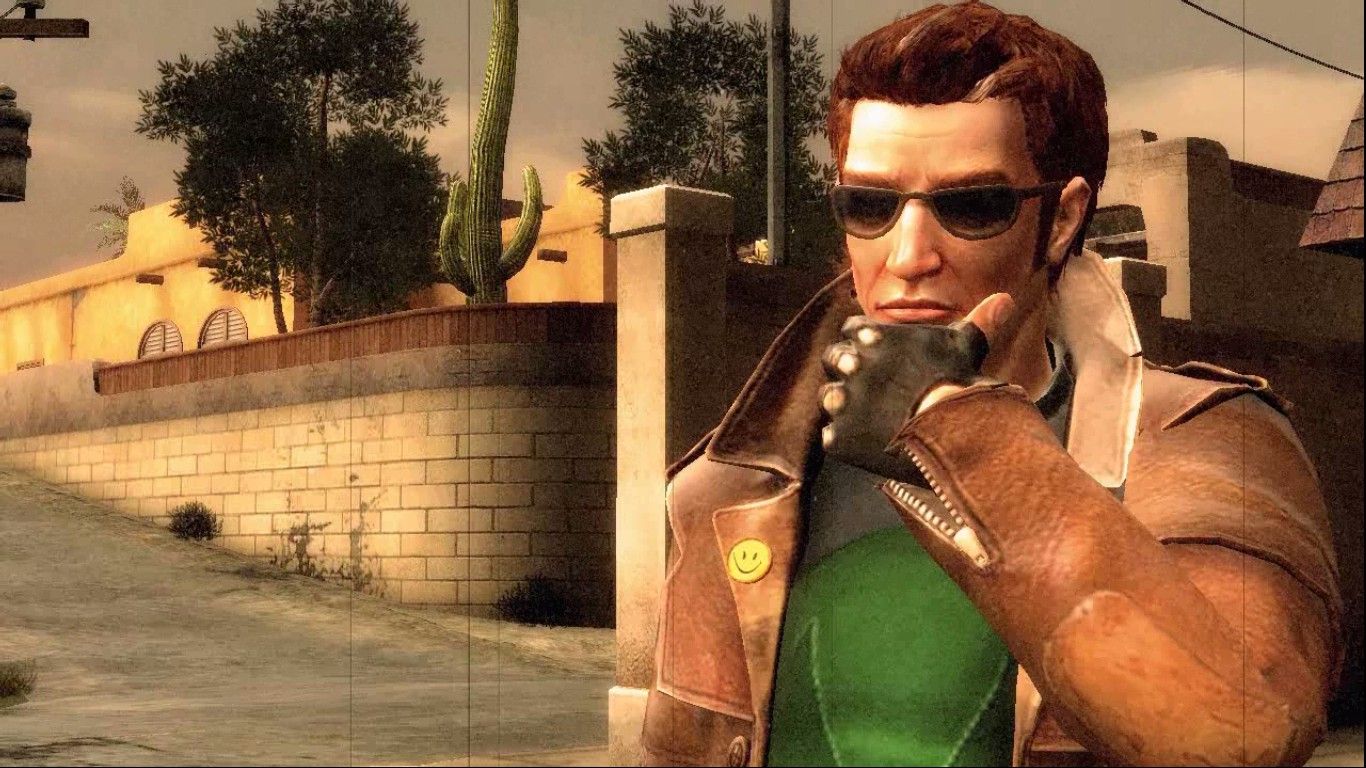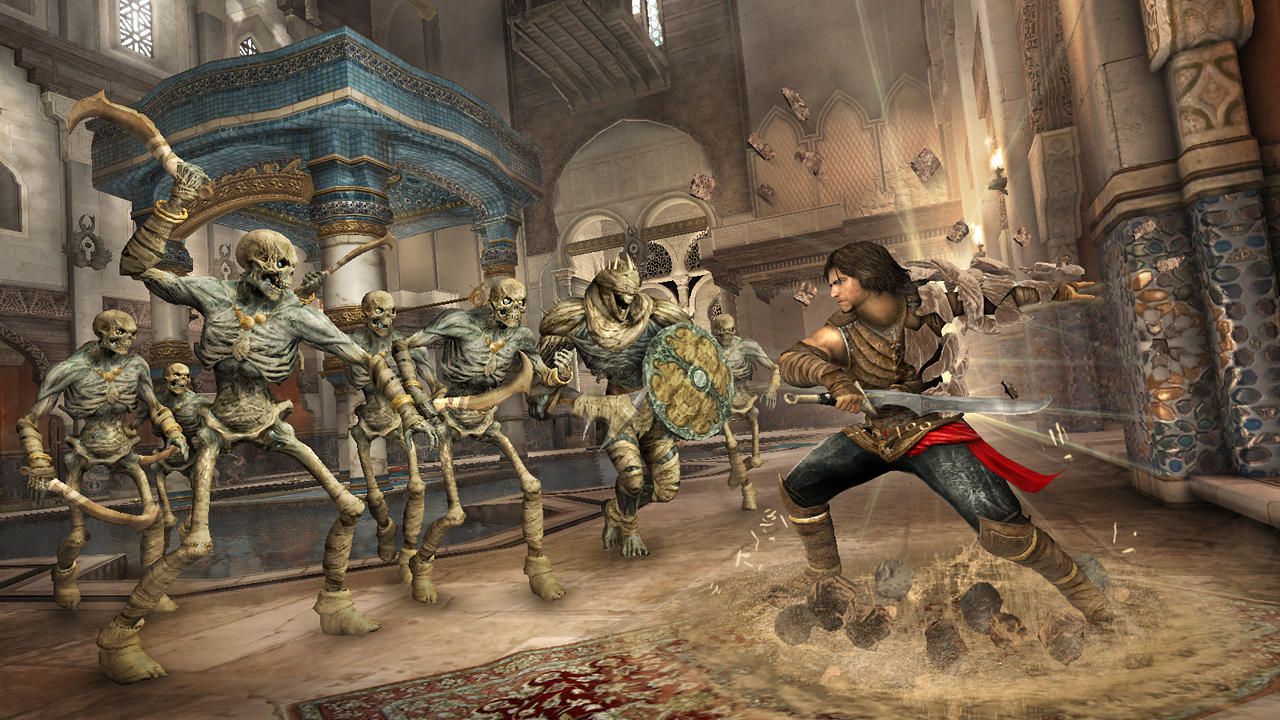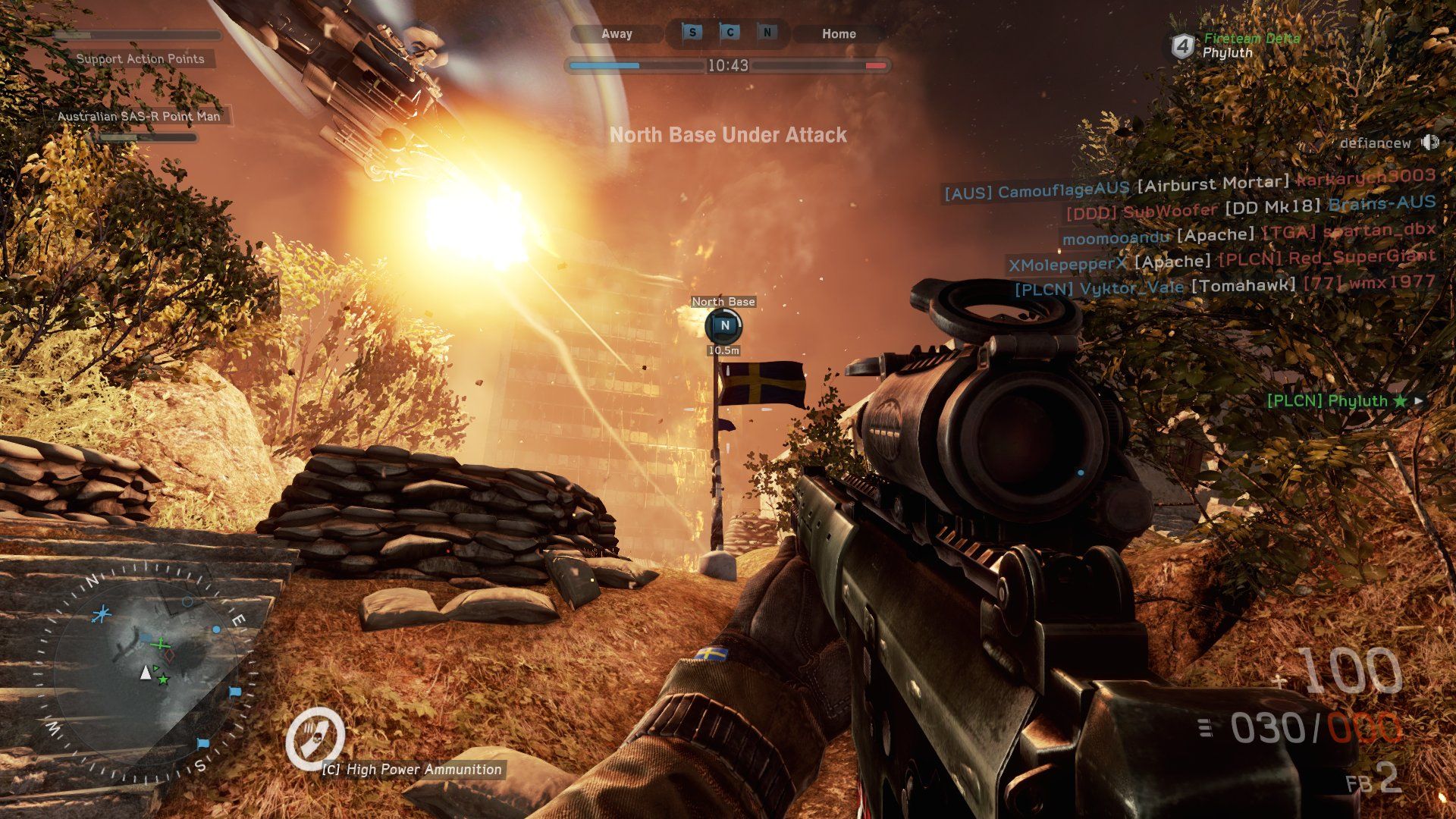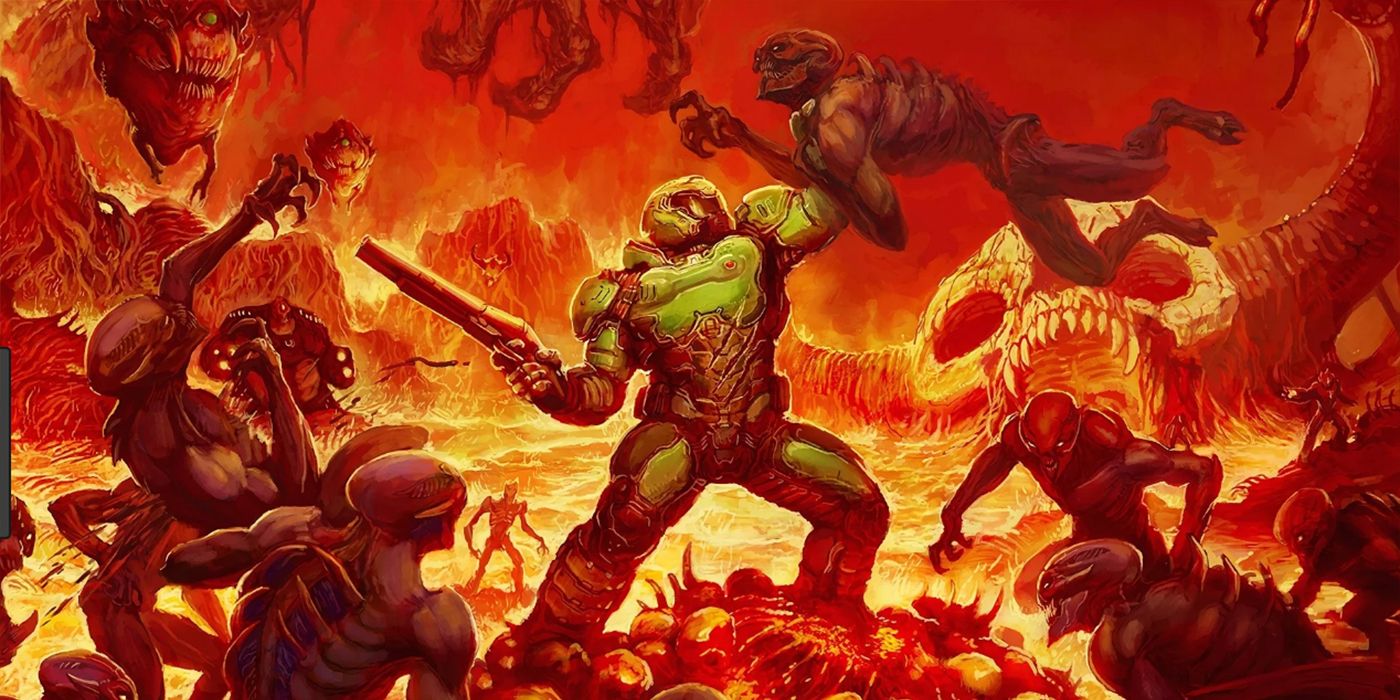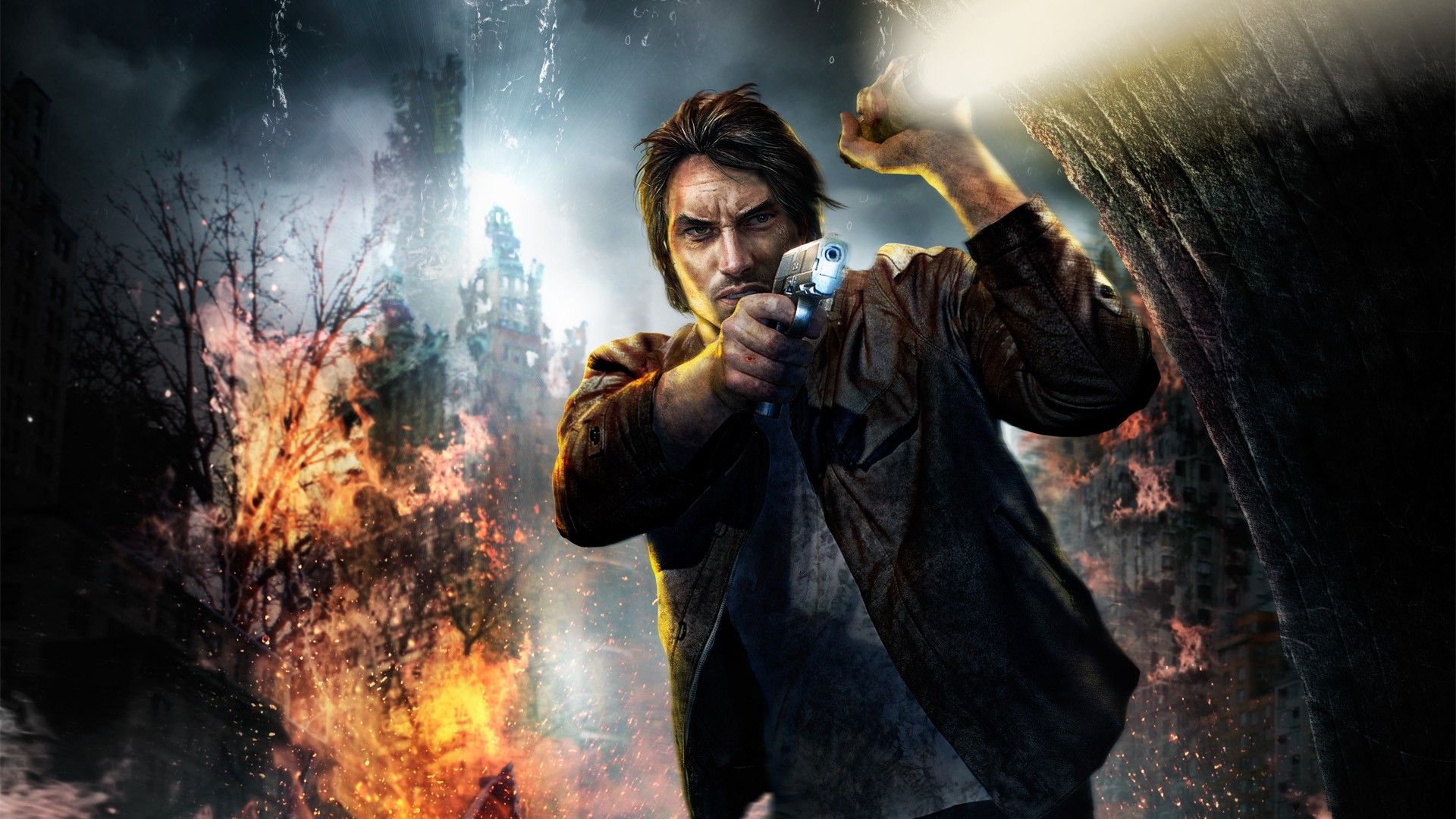Like most forms of entertainment, the video game industry is dominated by sequels. It's hard to buy a new video game without glancing at dozens of existing franchises — many of them on their third or fourth iteration. Some video game franchises have been going on for decades! God of War 2018 reinvents itself as a sequel to the original trilogy, Red Dead Redemption 2 is a prequel-sequel to the first, and Kingdom Hearts III is technically the twelfth game in that franchise. You just can't escape sequels.
Of course, not every game franchise gets to stick around. All it takes is one really bad game to ruin everything, or even warrant a total reboot. Some sequels do vastly improve on their endangered predecessors, but that is rare to say the least. For this list, we're going to look at the best and worst that video game sequels have to offer. Which ones have saved their fleeting franchises, and which ones have burnt them to the ground?
Keep in mind that this list will also include reboots, prequels, and spin-offs too. It doesn't matter if a game isn't a chronological, narrative sequel — if it was released as another game in an existing franchise, it's fair game for the list. Reboots are especially important here, as they're often the key to saving a franchise in the first place. Don't think that the games that "ruined" things are all bad, either. Many of them are perfectly fine experiences — they just don't live up to their ancestors.
With those rules out of the way, let's get into it — here are 20 Video Game Sequels That Totally Ruined Their Franchises (And 5 That Saved Them).
Saved — Watch Dogs 2
The original Watch Dogs was not well-received. Not only did trailers mislead players with upgraded, unrealistic graphics, but the gameplay turned out just as bland as the story and the gritty action movie tone. Watch Dogs 2 fixed all of that.
Gone are forgettable missions and edgy tone. With youthful characters, more toys to play with, and design that encourages stealth, the sequel demonstrates the franchise has potential after all. It still has kinks to work out — bugs are still prevalent, and the cast of "peaceful" activists probably shouldn't be using guns — but other than that, this sequel definitely saves the original from itself.
Ruined — Duke Nukem Forever
Have you ever seen an old action film that just doesn't hold up anymore? That's what this feels like.
Duke Nukem Forever has an unfortunately coincidental title. It took forever just to create, and even then, it was immediately apparent upon release that this '90s relic should have stayed in the '90s.
Duke hasn't aged well at all — the game was stuck in development for years with little to no innovation, and what players ended up paying for was a buggy, soulless, cringeworthy mess. The gameplay is paint-by-numbers, the humor doesn't work (even in 2011), and it was the final nail in Duke Nukem's coffin.
Ruined — Halo 5: Guardians
The once-king of first-person shooters has hit a lull recently, and that is mainly because of Halo 5. Devoted fans may find the word "ruined" a little harsh, but Guardians and its change in direction is an undeniable step back.
The marketing advertised a story that the game hardly reflected. The campaign itself is short and unmemorable. The multiplayer is littered with micro-transactions. Worst of all, Halo 5 doesn't include split-screen, meaning gamers could no longer play couch co-op. It didn't quite feel like the Halo that fans know and love.
The franchise itself is still kicking, and with Halo Infinite right around the corner, here's hoping that the developers learn from their mistakes.
Ruined — Spyro: Enter The Dragonfly
Spyro has returned in glorious high definition, but things didn't look so bright back in 2002. Enter the Dragonfly was the beginning of the end for Spyro.
After the fantastic original trilogy, this game pales in almost every aspect of comparison. Between the poor level design, the short run-time, and the seemingly infinite number of glitches, this game is the textbook definition of a bad sequel. Seriously, the glitches are so plentiful that they can be used to skip hours of an already brief experience.
The Spyro Reignited Trilogy may have saved the franchise from fading into obscurity, but Enter the Dragonfly is what set it on a downward spiral in the first place.
Ruined — Star Wars Battlefront II (2017)
Remember when you would pay for a game, and it was functional enough to play when you inserted the disc? Remember when you weren't asked to pay for "loot boxes" on top of what you paid to buy the game in the first place? Remember when you paid for a finished product? You're probably thinking of the older Battlefront games.
Published by Electronic Arts, 2017's Star Wars Battlefront II is an exemplar for the worst practices in the gaming industry. Half-baked releases, micro-transactions, neglected single-player — it has managed to ruin one of the best shooter franchises ever, even amidst Star Wars' resurgence. It's too bad that there's a solid game underneath those horrible flaws.
Ruined — Tony Hawk's Pro Skater 5
Older readers may have fond memories of the Tony Hawk games. Nobody has fond memories of Pro Skater 5. Dated graphics, clunky controls, uninspired levels, and filled with game-breaking bugs, Tony Hawk's Pro Skater 5 is a total mess.
The game was rushed through development and released unfinished — the day-one patch was larger than the contents of the disc itself, suggesting that the patch contained the bulk of the game. That's never a good sign. It doesn't help that the core features were tied to online services, which — now that the servers have been shut down — have made the game unplayable.
Just play Skate or dust off your copy of Tony Hawk's Underground instead.
Saved — Rainbow Six: Siege
For a while, tactical shooters took a backseat to the more casual FPS hits like Call of Duty and Battlefield. However, Rainbow Six: Siege brought strategy back to the genre with one of the most dynamic and difficult shooters to date.
While competitors are selling large-scale battles and Fortnite knockoffs, Rainbow Six focuses on intimate shootouts that favor skill and communication over gimmicks. It's a drastic departure from the also well-received Rainbow Six: Vegas, but this new direction is infinitely more engaging. Siege has renewed interest in the franchise and has maintained a loyal community of players since 2015.
Ruined — Mass Effect: Andromeda
After one of the most beloved video game trilogies ever made, Andromeda just couldn't live up to the hype. The spin-off isn't all bad — it comes with an improved combat system, more customization options, and a story that doesn't meddle with the previous games. However, it was hilariously buggy and underwhelming all around.
Mass Effect Andromeda's clunky animations received the most backlash, with facial animations looking especially uncanny and lifeless. Audiences didn't take to the new characters well either, which only made fans yearn for the original trilogy. It's certainly not the worst game on this list, but Andromeda is not the Mass Effect game fans want to remember.
Ruined — Banjo Kazooie: Nuts & Bolts
Who thought that turning this classic platformer into a kart-racer was a good idea? The "collectathon" gameplay from the original Banjo Kazooie and Banjo Tooie games is watered down in Nuts & Bolts, now replaced predominantly by racing and vehicle customization.
Nuts & Bolts isn't a bad game — it's actually quite fun — but old school fans of the series still haven't gotten over the game's change in direction. The platformer genre itself has dwindled in recent years, but even back in 2008, the game's penchant for kart racing over platforming seemed like a blasphemous idea. Fans are still waiting for Banjo Kazooie's return to form, but nobody knows if that day will ever come.
Ruined — Splinter Cell: Conviction
Splinter Cell has seen better days, and it all started with Splinter Cell: Conviction. The meticulous stealth of previous games is streamlined and traded out for an emphasis on action and shooting. The game is incredibly fun, but it feels more like a Liam Neeson action movie than a Splinter Cell game.
The sequel, Blacklist adds more stealth options and turns down the explosive tone... but it also replaces Sam Fisher's voice actor, which led to more unhappy fans. Conviction was the first step towards ruining Sam Fisher's career, and unless he's hiding in the shadows, nobody has seen him since.
Ruined — Dynasty Warriors 9
Dynasty Warriors isn't exactly a beloved franchise — the series is known for recycled and repetitive (albeit satisfying) gameplay. Somehow, despite having the same outdated formula for a decade, Dynasty Warriors 9 manages to take several steps backward under the guise of innovation.
Battles are now stretched out over an "open-world" that is mostly empty. The already simple combat system has been overly simplified. The series' unique weapons have been watered down too, replacing many characters' moves with cloned move-sets of others. Why advertise over 80 characters if half of them play the exact same way?
Dynasty Warriors 9 ruins any good will it may have had with its loyal fans.
Ruined — Star Fox Adventures
Nintendo has tried to recapture the love of Star Fox 64 time and time again, but nothing seems to do it — Star Fox Adventures definitely didn't. Developed by Rare, the studio behind Banjo Kazooie, Adventures replaces the series' space-flight gameplay with action in the vein of The Legend of Zelda. Of course, this is something nobody asked for, but that's because it was originally a very different game.
Rare was originally developing Dinosaur Planet, a title that Nintendo forced the studio to slap the Star Fox name onto. Adventures marked a bizarre change in direction for the franchise, and what feels some irreparable damage, too. Just make one like the original again!
Saved — Deus Ex: Human Revolution
Deus Ex is known for giving players an unparalleled amount of freedom. Players can choose violence, stealth, or even total pacifism to accomplish goals. Some missions can be completed with simple conversation, and traversing levels can offer the player tons of different routes and options. When Deus Ex: Invisible War streamlined the experience for worse, Human Revolution saved the day.
Human Revolution was a return to form for the series. The story is thrilling, the gameplay is layered, and the game is full of meaningful choices. Cyberpunk neo-noir drama is a bit niche, but the newer Deus Ex games are a blast to play — all because of the standard set by Human Revolution.
Ruined — Dead Space 3
Dead Space brought horror back to modern action games. Dead Space 2 kept the horror and added more action with huge set-pieces and bosses. Dead Space 3 loses the horror completely — and adds those pesky micro-transactions.
It's not an entirely bad game. Dead Space 3's biggest selling points were a co-op campaign and deep weapon customization. It's too bad that the campaign wasn't very scary, and that the customization was tied to an economy that encouraged players to pay real money for in-game resources. Other than that, it's a solid game, but not enough to keep the franchise alive.
It ruined any prospects of a sequel, and the studio, Visceral Games, has since been dissolved into EA Vancouver and EA Montreal.
Ruined —Mirror's Edge: Catalyst
The original Mirror's Edge is a cult classic. Between the gameplay and gorgeous art direction, the game was an underrated hit for years. The sequel, Mirror's Edge: Catalyst, isn't looked at the same way.
Instead of well-designed linear levels, Catalyst takes the parkour to an open world... and the transition is clunky at best. Players would get lost among confusing routes and dead ends very easily. Missions themselves are bland if not repetitive. Tack on a forgettable story, and this ambitious sequel falls short of its predecessor.
The open world must have sounded like a promising concept, but it simply didn't work the way it should have.
Ruined —Postal III
The Postal games may not be masterpieces, but the third entry is a total mess. With poorly designed levels, ugly graphics, and edgy humor that doesn't land, Postal III feels like an internet troll that thinks it is way cleverer than it actually is.
Although the series prides itself on humor that pushes boundaries, none of it has aged well at all. The game already feels rungs below the previous two, but due to the problems listed above (and the terrible Uwe Boll film adaptation that immediately comes to mind), it's safe to say that the Postal franchise has been ruined for good. It's probably for the best.
Ruined — Prince of Persia: The Forgotten Sands
Even after rebooting the original trilogy, the folks behind Prince of Persia decided to reboot their reboot — with a sequel to the original trilogy. Are you confused? Don't be, because you didn't miss out on much.
Prince of Persia: The Forgotten Sands follows up the 2008 reboot by returning to the original continuity, and it didn't work out well. While the game wasn't a total failure, it's a tired, dated sequel that forsakes innovation in favor of returning to franchise basics. It might have recovered some lost fans after the divisive reboot, but it ruined any interest in a potential return for the Prince.
Ruined — Medal of Honor: Warfighter
Medal of Honor used to be the pinnacle of first-person shooters, but back in 2010, it was simply "another one" — and a broken one at that. Medal of Honor: Warfighter was a sequel to the newly rebooted series, now in the modern day and now full of game-breaking glitches.
The series tried to make a comeback when military FPS games were all the rage. Even after a solid first entry though, it could hardly compete with the very similar Call of Duty and Battlefield franchises. Add on a boring campaign, a paint-by-numbers multiplayer, and more glitches than you can count, and Warfighter easily ruined the once glorified franchise.
Saved — Doom (2016)
Doom 3 took the classic game and placed emphasis on its horror elements, hoping to capture the spirit of the original with a modern-day update. It almost worked, but it turns out that the power-trip is what players crave. Doom 2016 did away with the spooky ambience to focus on the violence instead, and it might be one of the best shooters ever made.
The reboot is designed to encourage aggressive play. Timid players are punished for moving slowly by using weapons at a distance, while those willing to rip and tear through demons are rewarded. The game makes fighting through hell sound like a fun weekend, and it has successfully saved the franchise.
Ruined — Alone In The Dark
2008's Alone in the Dark could have been a comeback for the cult classic series. Instead it became a laughing stock upon release. Not only is the survival-horror game not very scary, but every innovative idea it has is poorly executed.
The controls are wonky, the story is bland, the combat is awkward, and the dialogue is downright cringe-inducing. Don't even get us started on the awful driving controls. This game doesn't work on any level, and while there is no shortage of great survival-horror games on the market, Alone in the Dark is definitely not one of them.

